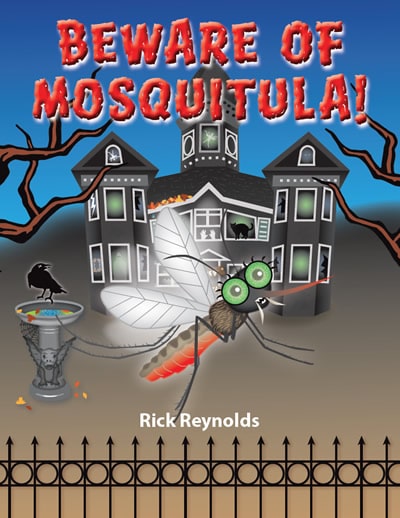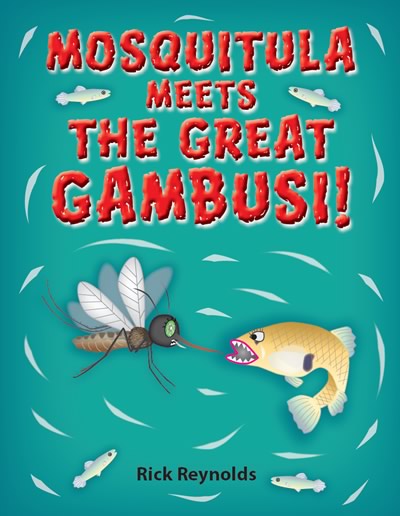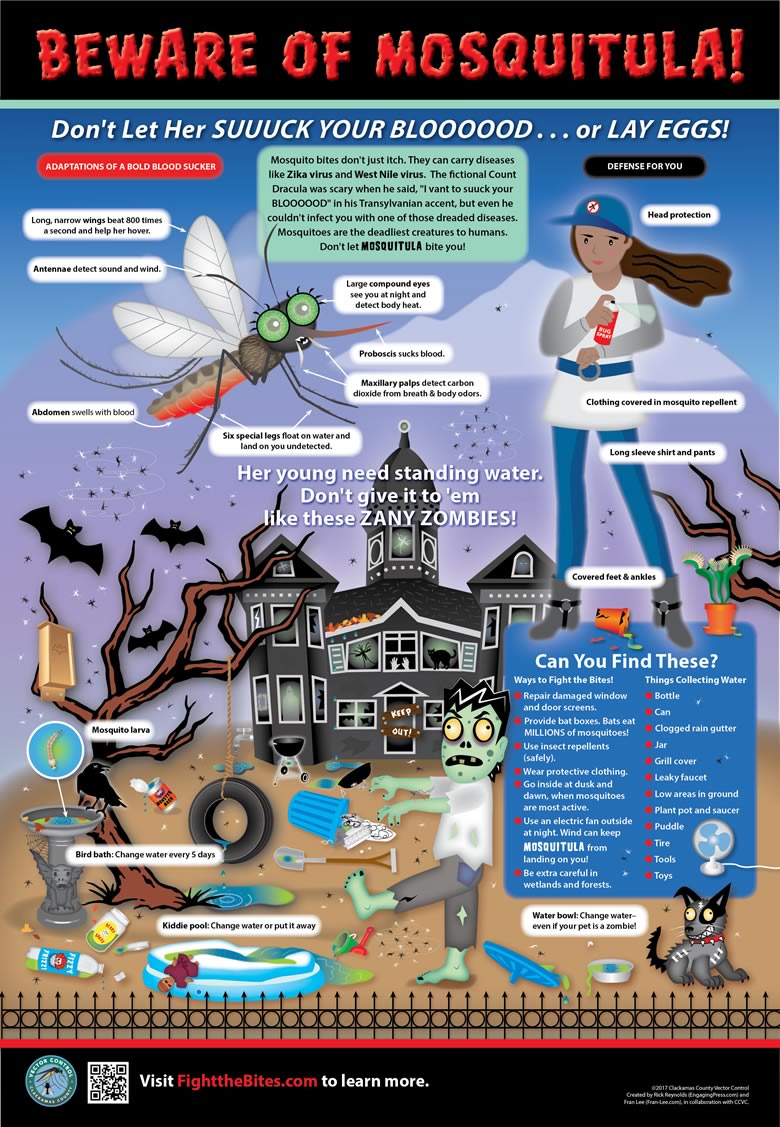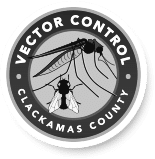CCVCD staff are pleased to be able to support educators and students with hands-on resources including mosquito larvae in safe emergence cages, macro lens magnifiers, pipettes, and more, as well as visits by biologists and other experts. Interactive multimedia presentations can be shared with students, in addition to the activities, or educators can download the presentations and other resources from the right column of this page. We seek to inspire students to think critically about mosquitoes and other potential disease vectors, including their fascinating life cycles and adaptations, and we appreciate you joining us in this important collaborative effort!
Each class keeps a Life Cycle Kit for about two weeks. It contains learning tools that allow students to actively study the biology, ecology, and control of mosquitoes. Students are able to safely observe the metamorphosis of mosquito larvae into pupae and then flying adults. Mosquito fish (Gambusia affinis) may also be included so students can study the effects of a biological control.
Educators are provided with supplemental resources, including the teacher’s guide shown on the right with suggested lesson procedures, experiments, simulations, and other guided activities that reinforce key concepts. Students are also provided with information to take home, including CCVCD contact information and our services that are provided free of charge.
Objectives of CCVCD’s Education Program include:
- Students demonstrate understanding of mosquito life cycles and that mosquitoes require water to develop.
- Students can explain that some mosquitoes and other organisms can transmit certain diseases to people and other animals.
- Students can explain verbally and in writing how they can help in the fight against mosquitoes by dumping standing water and educating others about mosquitoes.
- Students demonstrate skills such as careful observation, scientific illustration, data recording, data analysis, graphing, and written/oral expression.
Alignment to Standards
Fight the Bites! need not compete with core curriculum for classroom time. Instead, it can help teachers cover core concepts and improve student skills by using hands-on materials and field study in local areas. To help teachers identify the ways in which the lessons can be used to meet their curriculum requirements, each lesson is correlated to the Next Generation Science Standards and Common Core State Standards.
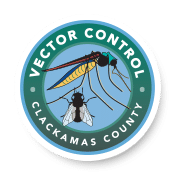

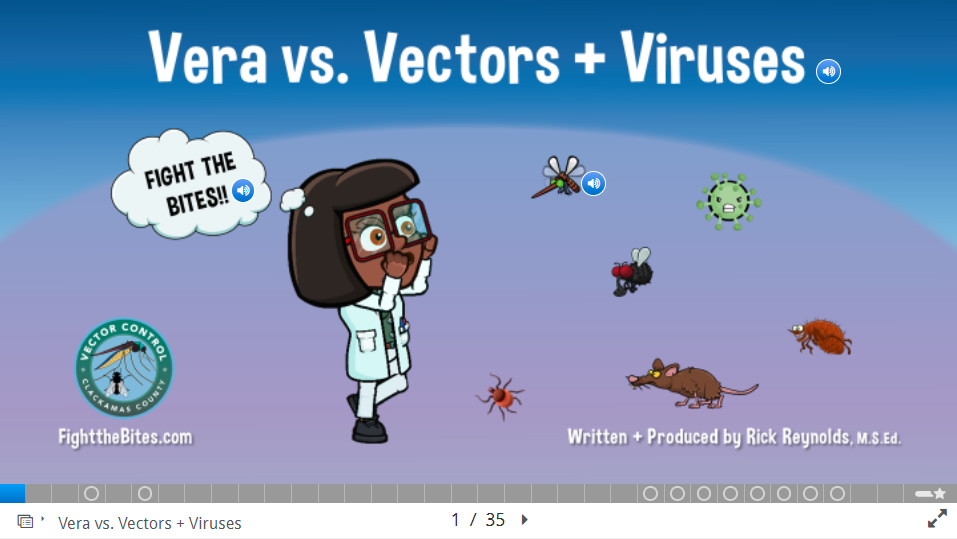
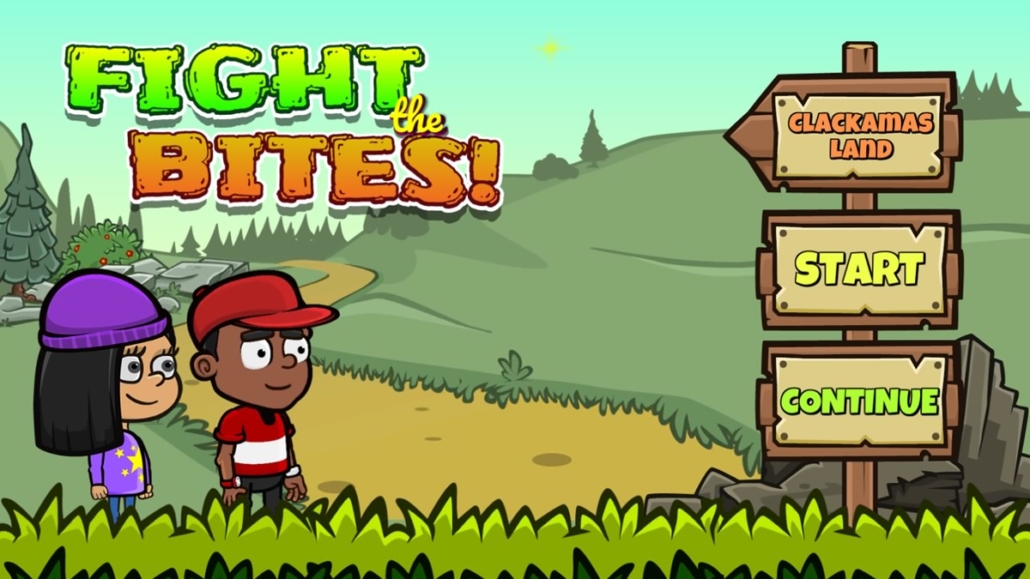 Don’t let Mosquitula suck your blood! Fight off her attacks and complete quests as you journey through Clackamas Land. Mosquitula has taken over Clackamas Land!
Don’t let Mosquitula suck your blood! Fight off her attacks and complete quests as you journey through Clackamas Land. Mosquitula has taken over Clackamas Land!